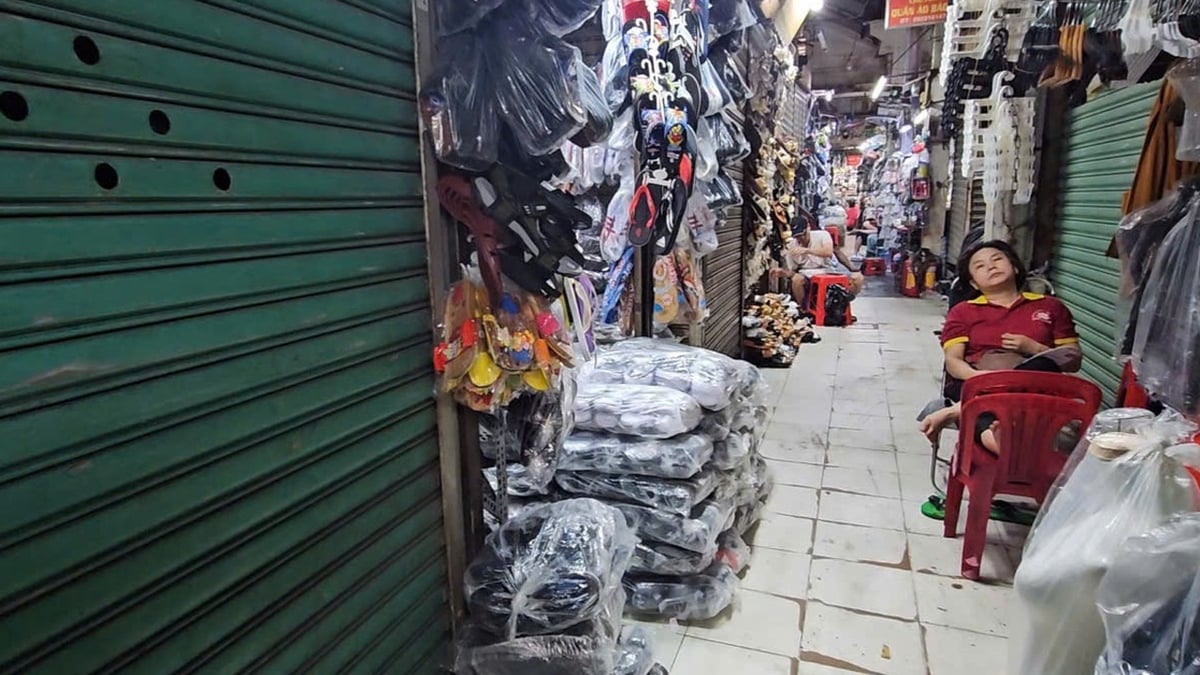"So dangerous, there are so many high-tech scams like this nowadays. Everyone share this so we can be highly vigilant. Tet is coming and leaving money in your account is very dangerous if you are careless and subjective," a Facebook account named Thu Hien posted with screenshots of text messages warning about the new scam.
After one day of posting, the above article went viral on social networks with more than 1.4 million shares and more than 450 comments. However, experts from the National Cyber Security Association confirmed that this was just fake news.
Fake news "lost 100 million VND over the phone" appears in droves
On the eve of Lunar New Year, articles related to high-tech financial fraud continuously appear on social networks in many forms, from photos of articles to warning videos .
After the rumor that "receiving calls from unknown numbers can cause your account to be completely deducted" was confirmed by cybersecurity experts to be fake news, causing panic, recently, fake news about "scanning QR codes can cause your account to be completely deducted after 5 seconds" has continued to spread.
According to a woman's video, her husband's account was completely wiped out after less than 5 seconds of scanning the QR code. After scanning the code, the phone "froze" and could not be operated. After the smartphone was turned on again, more than 100 million VND in the account was gone. "There are many types of scams that can cause anyone to lose money, from scanning QR codes to copying account numbers," the woman added.

Video of losing all money in account after less than 5 seconds of scanning QR code is causing panic on social networks
After just one day of posting, the video has attracted millions of views, tens of thousands of shares and has been screen-recorded and reposted on many other social networks. However, cybersecurity experts quickly pointed out that this is just a fake rumor. The nature of QR codes is only an intermediary for transmitting content, not malware, so the loss of money in the account after just scanning the QR code is baseless.
While the above rumors were being shared at a dizzying rate, social networks continued to appear with many other warning posts about "thrilling scam stories". According to this person, a strange number 09 called and informed her about a loan of 100 million VND. She did not care, pressed to turn it off but it did not work. "Then the phone automatically switched to FaceTime to scan my face. The phone froze for a while before I could log back in", this person said. After checking her account again, her money was still there because "her face was not scanned".
Although the news is unverified, the above article quickly attracted 1,400 shares after only a few days of posting. In the comments, many people expressed confusion because calls from the number 09 are normal, some people receive dozens of calls every day.
Why fake news flourish?
Mr. Vu Ngoc Son, Head of the Technology Department of the National Cyber Security Association, said that rumors such as receiving calls from strangers and losing all money, scanning QR codes and losing money, or receiving strange calls via FaceTime to scan faces and then having money deducted from the bank are all fake but have recently become popular on social networks.
Rumors often originate from people who lack technical knowledge or may intentionally exploit them to gain views and likes on social networks. Some sources may also originate from people who want to tease, cause confusion, create instability, or simply attract attention.
According to Mr. Son, there are two factors that make people still believe and share information without verifying it. First, the problem of fraud has become so common that everyone is interested, content about fraud will quickly become more popular than traditional content because everyone is worried about losing money.
The second factor is that current scam situations are too sophisticated, people who create this type of content can be said to be "free to create" scenarios and situations that only exist in the imagination. "We need to be more alert, although some forms of high-tech scams do exist, scammers do not use new tools that are as unimaginable as above," Mr. Son noted.
How to identify fake news
According to the representative of the National Cyber Security Association, when receiving content related to fraud, warnings, and support to get money back, people need to be calm, alert, and should not rush to share without verification.
People can identify or verify shocking information in the following ways:
- Research the source : Check where the news is coming from, is it reliable?
- Look for cross-reference information : Look up official news articles or reputable websites to see if the information has been verified.
- Seek expert advice : Tech-savvy people can help assess the feasibility of the scams mentioned. However, people should also avoid self-proclaimed “experts” who advertise on social media to avoid losing money and getting into trouble.
Fraud matrix traps users near Lunar New Year
According to Mr. Son, fake news about finance flourishes around the Lunar New Year because this is the time when people often save money to prepare for the holiday, make financial transactions, and buy and sell more than usual.
The surge in transactions creates an environment of anxiety and uncertainty, making people more likely to believe exaggerated alarmist stories. In addition, the fear of losing money during a major holiday season increases the spread of these rumors. Even more dangerous, some subjects even use scam warnings to lure users into other sophisticated scam scenarios.
Mr. Son also noted that according to Clause 1, Article 8 of the 2018 Cyber Security Law, among the prohibited acts regarding cyber security, there is a list of acts of using cyberspace to spread false information causing panic among the people. Therefore, people need to pay close attention, improve their understanding of the law, and avoid acts that contribute to fake news.
Source: https://thanhnien.vn/ro-tin-gia-lua-dao-bang-cong-nghe-cao-khien-nhieu-nguoi-hoang-mang-185250117141653623.htm





































































































Comment (0)